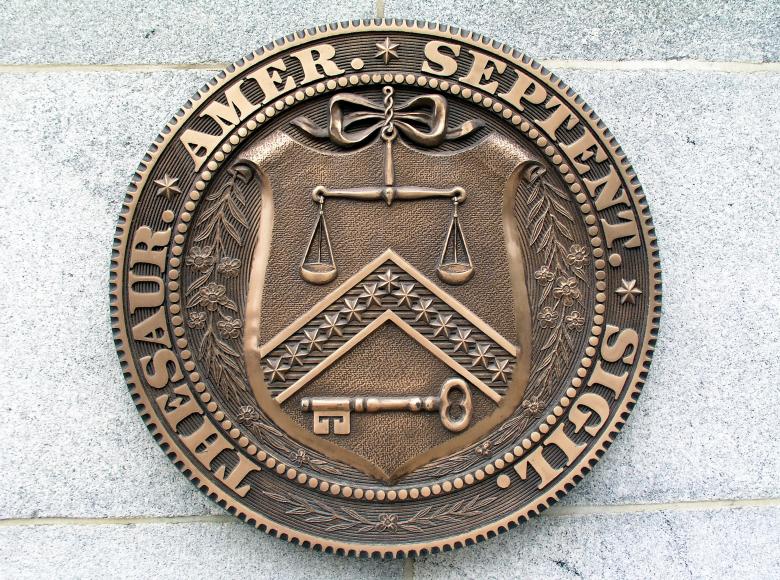
Over my 28 year career at the IRS I witnessed Congress outsourcing IRS Collection activities twice. Once it ended in failure with violations of taxpayer rights as some firms tended to try and make shortcuts to make more profit and intimidated taxpayers illegally. The other ended up costing the federal government more than they collected. The IRS has been ordered by Congress to do this again. This Forbes Article by Robert Wood points out 10 things you should know.
With the scammers out there calling taxpayers and threatening them to pay or else, the IRS is now officially warning taxpayers to beware. I have had neighbors, attorneys, CPAs and business valuers call me having had these harassing calls. There are so many of these now that the Treasury Inspector General for Tax Administration has set up a web site to get a handle on these unscrupulous scammers that claim to be the IRS or working for the IRS. The IRS has a form for you to fill out too. I see a potential danger with the new contracting by the IRS to collection agencies to collect tax dollars for the IRS. Do you?
There are some jobs that are “inherently governmental”. For example as an engineer and business valuer for the IRS about every three years as a territory manager we would be asked by the Treasury Department to prepare rationale as to why IRS engineers and business valuers could not simply all be contracted out to the private sector as requested by members of Congress. Each time we would look at the definition of inherently governmental and need to explain what we did and why the work we did was in part engineering or business valuation, but also required knowledge of tax law and accounting and the ability to address all of the legal issues associated with working for the government. It takes about 2 years before a new hire engineer or business valuer is fully trained and able to address all of the nuances associated with being an IRS engineer or business valuer. They have an experienced on the job instructor as a coach as well as a training program to assist with this process.
The Forbes article warns taxpayers:
1. “First, the private collector usually will contact the taxpayer by letter.”
This term usually concerns me given the commentary on scammers above. Even with a letter if I was a taxpayer I would have concerns about some private company knowing all of my tax information. What are the penalties and ramifications of that employee working for that private sector vendor? At the IRS there is annual training and a culture as well as security to address these areas. I hope the vendor has the same or better systems.
2. “If the taxpayer’s last known address is incorrect, the private collector searches for the correct address. Next, the private collector will telephone the taxpayer to request full payment.
3. If the taxpayer cannot pay in full right away, the private collector offers an installment deal for up to five years.
4. If the taxpayer is unable to pay even over five years, the collector asks for taxpayer financial information to see what sort of deal the taxpayer should get. There are controls on financial data, but there is considerable worry about having taxpayer data in private hands.
5. Private collectors cannot accept payments. Do not pay them directly!
6. The Fair Debt Collection Practices Act applies to private collectors. This is the same law that applies to collectors in other circumstances.
7. There are many reports required under the law. Congress and the Treasury Department are trying to determine if private collection is efficient and how well it works.”
Note my comments above. I remain skeptical. If indeed it again does not work, the IRS will be held accountable for the failures of the private sector collectors. At least that has been the pattern in the past. It is never Congresses fault for ordering the system and micromanaging the system. If it does work, then great. I hope this is not strike three, but the third time is a charm. Again I remain skeptical.
8. “In some cases, the IRS is actually required to use private collectors, where:
· The tax bill is not being collected because of a lack of IRS resources or the IRS’ inability to locate the taxpayer.
· More than 1/3 of the statute of limitations has expired, and no IRS employee has been assigned to collect it; and
· The tax bill has been assigned for collection, but more than a year has passed without any interaction.
9. Some tax bills cannot go to private collectors, as where:
· There is a pending or active offer-in-compromise or installment agreement;
· It is an innocent spouse case;
· The taxpayer is deceased, under age 18, in a designated combat zone, or is a victim of identity theft;
· The taxpayer is under IRS audit, in litigation, criminal investigation, or levy; or
· The taxpayer has gone to IRS Appeals.
10. If you have a large tax debt, you might also have trouble traveling, since the IRS power to revoke passports was also signed into law. It is also part of the FAST Act. We think of passports as being needed only for international travel, but some people may find that passports are also required for domestic travel in 2016. “
It should be another interesting test. Beware of these ten concerns being offered by Robert Wood. I think he raises some very good points.
About the author
Mike Gregory is a professional speaker, an author, and a mediator. You may contact Mike directly at mg@mikegreg.com and at (651) 633-5311. Mike has written 12 books (and co-authored two others) including his latest book, The Collaboration Effect: Overcoming Your Conflicts, and The Servant Manager, Business Valuations and the IRS, and Peaceful Resolutions that you may find helpful. [Michael Gregory, ASA, CVA, MBA, Qualified Mediator with the Minnesota Supreme Court]

